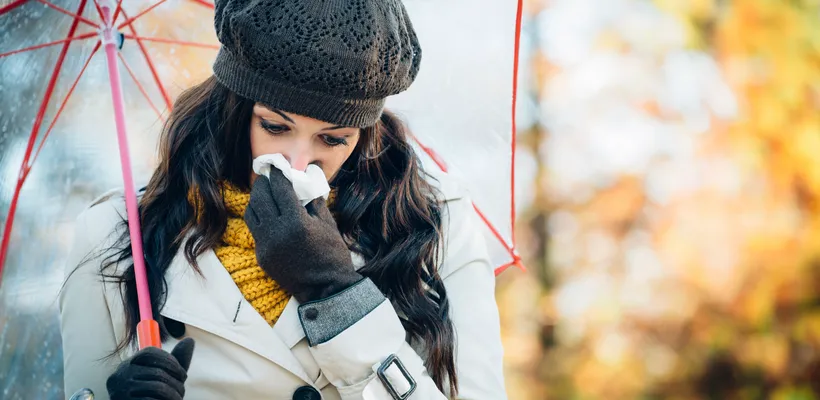All About Winter Allergies

Published: 18th October, 2017 in: Cough, Cold and Flu
Hayfever season may be over, but that doesn’t mean that you won’t suffer from sneezing, wheezing or sinus pain during the winter months. With this in mind, let’s discuss how winter allergies may affect you and how to treat them.
Winter Allergy Triggers
So, why does winter result in your allergies flaring up? The weather has a significant affect on allergy symptoms so you may find that your eyes start to water and your head feels stuffy when the temperatures start to drop.
During the colder months, we tend to spend more time indoors. Indoor allergies are more prominent in winter and you could be affected by dust mites and pet dander as a result. There are a number of things that you can do to prevent these symptoms. Using a dehumidifier and allergy proof linens can help a lot and if you plan to have a tree at Christmas, an artificial one attracts less chemicals and mold.
Winter Allergies vs the Common Cold
The symptoms of winter allergies are very similar to that of a common cold so how can you tell the difference? If you are suffering from a runny nose, streaming eyes or a scratchy throat, allergies or a cold could be to blame.
It is worth noting that cold symptoms will disappear within a week while allergy symptoms can persist for weeks and sometimes months.
Winter Allergy Remedies
Unfortunately, you can’t prevent allergies but you can prepare for them. If you suffer from winter allergies, putting together a seasonal survival kit can help to reduce the symptoms significantly.
As well as taking steps to discover what triggers the symptoms, there are a number of allergy treatments that can relieve the symptoms such as itchy eyes and nasal congestion. If you are allergy prone, antihistamines and decongestants can provide quick relief.
At Weldricks we stock a range of over the counter allergy relief products to provide respite from coughing, sniffling and itching. Shop online with us today.